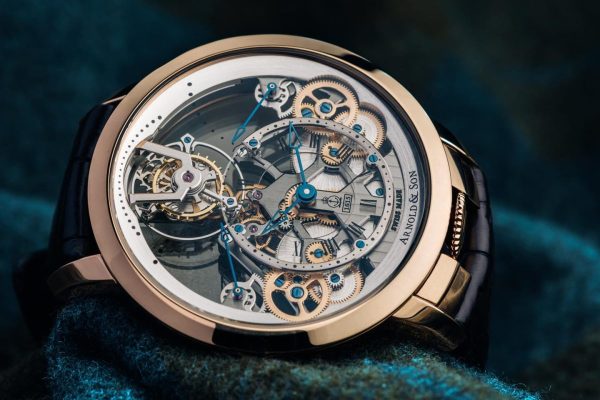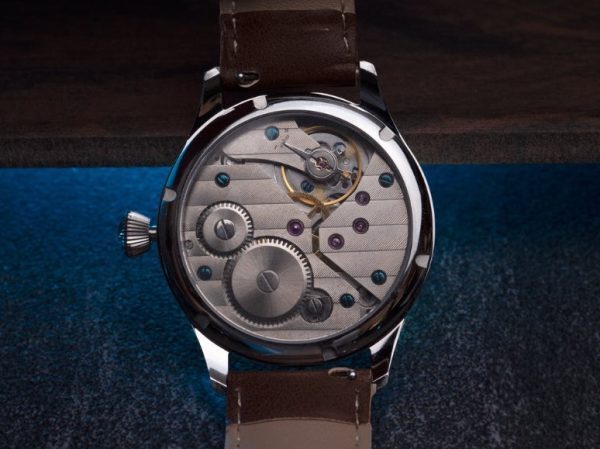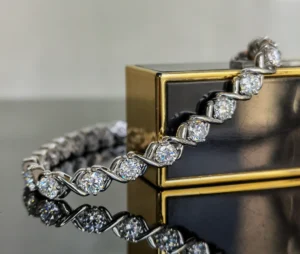Watches are excellent timepieces that come in different sizes, shapes, and styles. For instance, there are wall clocks, pocket watches, and wrist watches. But today, we’re going to talk about wristwatches, which have remained relevant in this technological age due to numerous reasons. Prestige, status, nostalgia, and making a unique fashion statement to name just a few.
If you’re here, it’s highly probable that you’re a massive wristwatch aficionado. But there may be many interesting facts that you may not know about wristwatches, especially mechanical ones. This article focuses on mechanical watches and some interesting facts you may not have known about them.
What Are Mechanical Watches?
Mechanical watches utilize the clockwork mechanism to function and keep time. They are powered by a mainspring that is wound manually or through self-winding movement, which happens when you move your wrist.
Once upon a time, almost every watch on the market was mechanical. However, in today’s day and age, mechanical watches are synonymous with luxury and prestige.
Many watch collectors, perhaps including yourself, focus on brands such as Rolex and other premium brands that pride themselves on producing top-notch mechanical watches with matchless craftsmanship.
Are Mechanical Watches Better?
It’s not easy to answer this question as there is no straightforward answer. It just depends on how you look at it.
Since mechanical watches are not battery-powered, you don’t have to go through the trouble of changing batteries from time to time. However, you have to wind them regularly. You can do so automatically by wearing them frequently or you can buy winders specifically designed to store mechanical watches.
The real upside to using a mechanical watch is that it lasts a lifetime, perhaps even more than a lifetime. An expensive watch, such as a vintage Rolex or Omega or something along those lines, can be worn by successive generations in a family. In fact, such pieces are often passed on as family heirlooms.
That is not something you can do with most digital watches. Moreover, digital watches are seldom as luxurious and elegant as mechanical watches can be.
10 Interesting Facts about Mechanical Watches You Didn’t Know
Here are eleven interesting facts about mechanical watches you wish you knew earlier!
1. They Were First Designed For Women
Mechanical watches can be traced back several decades. While men carried pocket watches, manufacturers saw it wise to design a timepiece for women, and that is how mechanical wristwatches came about.
There are disputes around who was the first person to own a mechanical wristwatch, with some saying that Robert Dudley made it in 1571 for Queen Elizabeth I of England. Whereas, many others claim that it was Patek Philippe, the famous Swiss watch manufacturer, who created the first mechanical watch for Countess Koscowicz of Hungary, or Caroline Murat by Breguet.
Even though it was first created for women, within a short period of time, men also started being attracted to mechanical wristwatches.
2. They Have Approximately 130 Components
Mechanical watches are complex machines. For instance, it is estimated that most watches have more than 100 parts. Just to give you a more specific example – the Calibre 89, made by Philippe Patek, has 1,728 parts, making it the most complicated watch ever manufactured.
The parts found in almost all mechanical watches include:
- The mainspring, which powers the watch.
- The balancing wheel and hairspring. They oscillate, thus, measuring and dividing time.
- The escapement helps distribute the impulses produced by the oscillator.
- The gear train is tasked with transmitting powers throughout the parts of the watch.
- The winding stem.
- The dial train is tasked with activating the hands of time.
3. Mechanical Watches Make a Tick Sound
The ticking sound is one of the most quirky features of a mechanical watch. If you enjoy that sound, you should be pleased to know that most mechanical watches make a ticking sound, and only a few sweep.
For example, according to this article, Rolex watches don’t tick, which makes them an exception in the world of mechanical watches.
In almost all other cases, a mechanical watch makes a ticking sound. A mechanical watch operates at a speed of 28,800vph, meaning that the balancing wheels vibrate 28,800 times per hour. And each vibration stands for a tick, meaning it ticks eight times per second.
4. They Last For a Lifetime
Mechanical watches will never become obsolete; the only thing that happens is they evolve as better components are made.
A mechanical watch will always be relevant. In terms of technology, it’s perhaps been surpassed. But keeping time is not the only thing that mechanical watches are for. They are a fashion statement and an asset.
For instance, the invention of Quartz, the most accurate time-keeping mechanism, could have made mechanical watches obsolete. But that hasn’t happened.
Furthermore, smartphones and other gadgets such as smartwatches can easily tell us the time now. But those too have not been able to banish mechanical wristwatches from the market.
5. They Lose Time
Mechanical watches are not always accurate. Their beauty and complex nature notwithstanding, these watches’ mechanical parts tend to gain or lose a few seconds. This is because they are affected by many things such as gravity, and other complications might arise when you wound the mainspring.
6. They are a Symbol of Luxury
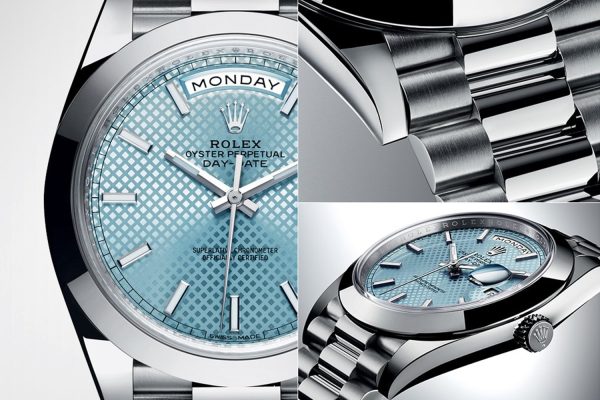
Mechanical watches are a work of art, so people are willing to spend thousands of dollars buying them. And the best part is you can make it a family heirloom as it can be passed down from generation to generation. And like all vintage items, you have to pay a premium.
But the price of mechanical watches is not down to the brand value alone. These watches are impeccable craftsmanship and intricate detail.
7. They’ve been to the Moon
Mechanical watches have traveled to the Moon. The OMEGA Speedmaster was the first mechanical watch to land on the Moon while worn by the astronaut Buzz Aldrin. This is the watch now known as the Moonwatch.
8. They are the World’s Most Complicated Watches
The Vacheron Constantin 57260 is probably the most complicated watch manufactured as it took eight years to assemble. It is often reported that it went through 85 prototypes before it was approved.
Whether that’s true or not, what can be verified is the fact that the watch has 2,826 components, with 242 jewels and 57 complications. The face of the watch has 33 hands, and the price of this piece can be as high as $10 million.
The Calibre 89 manufactured by Patek Phillippe is also termed the world’s most complicated mechanical watch as it took five years of R&D and another four years to make it. This watch has 1,728 components and 33 unique features, including a thermometer, a Stan chart, and 24 hands. The watch carries 18 carats of gold.
9. They Have Been to the Bottom of the Ocean
Do you think mechanical watches only went to the moon? They have been under the ocean as well!
In the film “The Silent World,” Jacques Cousteau wears the Rolex Submariner, making it the first wristwatch to be used under the sea. And a year after, Rolex launched another watch, The Rolex Oyster Perpetual Submariner.
But the most interesting thing is that mechanical watches and seafaring have a long and intimate relationship. Many brands such as Rolex and Omega have entire product lines with a theme around the sea.
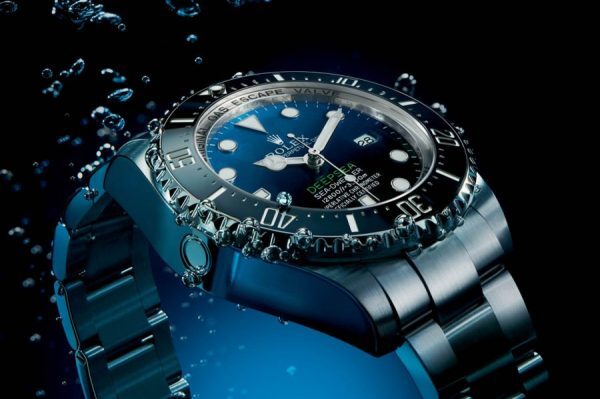
10. They are Not Magnetic Field Friendly
Please do not place your mechanical watch near a magnetic field, as you could destroy it. Your watch escapement can react erratically, interrupting the oscillators that help keep proper timing. So don’t place your watch near radios or any electronic device.
What Should You Do to Avoid Wrecking Damage to Your Mechanical Watch?
Mechanical watches are complex yet delicate devices. You need to be extra careful when taking care of them.
For instance, when operating your mechanical watch, you must avoid damaging the oscillators or other components. Below are tips you can keep your mechanical watch in solid condition for years to come.
Don’t Adjust the Time When the Watch is on Your Wrist
While you may find it convenient to adjust the time when wearing the watches manually, it can have dire consequences. This is because you risk placing too much tension on the winding stem, which connects the crown to your watch’s interior.
You should remove it and then wind it; this will give you a good angle, and you will also be able to feel when to stop as it will provide you with a noticeable level of resistance, signifying it’s fully wound.
Don’t Use the Crown Underwater
Yes, mechanical watches are waterproof, but if you use the crown while underwater, you risk having the water seep in.
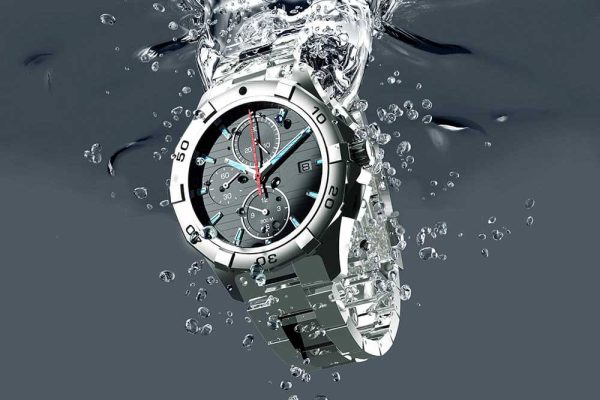
Avoid Magnetic Fields
Mechanical watches are highly susceptible to magnetism, as the traditional alloys used in the oscillators are affected by magnetic fields, causing them to lose accuracy. You can restore precision by de-magnetizing your watch or protecting it using a soft-iron inner case, a Faraday cage.
However, modern mechanical watch manufacturers, such as Omega, Rolex, and Tudor, use special alloys to make their watches anti-magnetic.
Do Not Wear a Mechanical Watch While Being Active
You can play golf or drive while wearing modern mechanical watches, but don’t attempt it while wearing vintage pieces.
Vintage mechanical watches are not equipped with shock resistance technology meaning that they will be affected by gravitational movement. To be on the safe side, use golf watches.
Final Thoughts
As we’ve seen, mechanical watches are timeless works of art and craftsmanship.
If you want to have a family heirloom that you can pass down to your children and grandchildren, why not consider getting a mechanical one as they will always remain relevant and fashionable?
We hope you’ve enjoyed these interesting facts about mechanical watches and it has piqued your interest in owning one if you don’t already.

